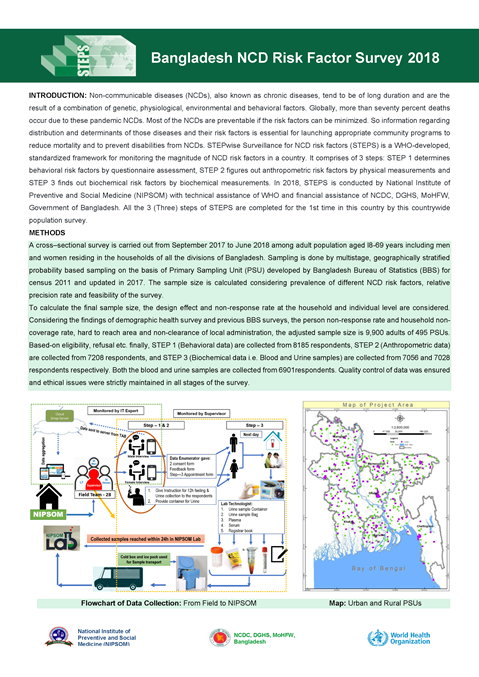2018 STEPS Fact Sheet Bangladesh

Overview
Non-communicable diseases (NCDs), also known as chronic diseases, tend to be of long duration and are the result of a combination of genetic, physiological, environmental and behavioral factors. Globally, more than seventy percent deaths occur due to these pandemic NCDs. Most of the NCDs are preventable if the risk factors can be minimized. So information regarding distribution and determinants of those diseases and their risk factors is essential for launching appropriate community programs to reduce mortality and to prevent disabilities from NCDs. STEP wise Surveillance for NCD risk factors (STEPS) is a WHO-developed, standardized framework for monitoring the magnitude of NCD risk factors in a country. It comprises of 3 steps: STEP 1 determines behavioral risk factors by questionnaire assessment, STEP 2 figures out anthropometric risk factors by physical measurements and STEP 3 finds out biochemical risk factors by biochemical measurements. In 2018, STEPS is conducted by National Institute of Preventive and Social Medicine (NIPSOM) with technical assistance of WHO and financial assistance of NCDC, DGHS, MoHFW, Government of Bangladesh. All the 3 (Three) steps of STEPS are completed for the 1st time in this country by this countrywide population survey.
